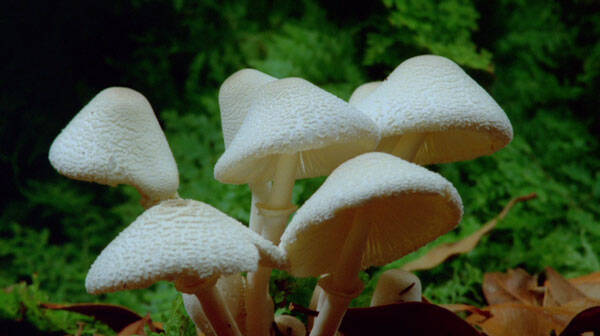Mushrooms and mental health
The fact that fungi play such a big role in environmental health isn’t the only aspect that has gained attention over the last couple of years. Writers, scientists and filmmakers are also touching on the fact that mushrooms may be able to help cure certain diseases and support people with mental health issues.
In 2019, Imperial College London and John Hopkins University in Maryland, opened special research centers to study compounds like LSD and psilocybin (a naturally occurring psychedelic prodrug compound produced by more than 200 species of fungi) for a range of mental health problems that included anorexia, addiction and depression. On treatment day, a person comes into the clinic, is administered the drug and then sits or lies down under the watchful observation of a therapist who provides support and occasional guidance as the drug’s effects are felt. Research trials thus far have demonstrated that hallucination-inducing substances psilocybin and psilocin can help fight addiction and depression, if taken in small doses.
Professor Alexandre Antonelli is Director of Science at Royal Botanic Gardens, Kew in Richmond, United Kingdom. In his 2020 publication “State of the World’s Plants and Fungi'' he writes: “For thousands of years, humankind has turned to nature to satisfy hunger, cure our diseases, and make our lives more comfortable. But indigenous knowledge was lost as local traditions were downplayed and globalization emerged. As a result, we are still a long way from utilizing the full potential of biodiversity, particularly plants and fungi, which play critical roles in ecosystems."
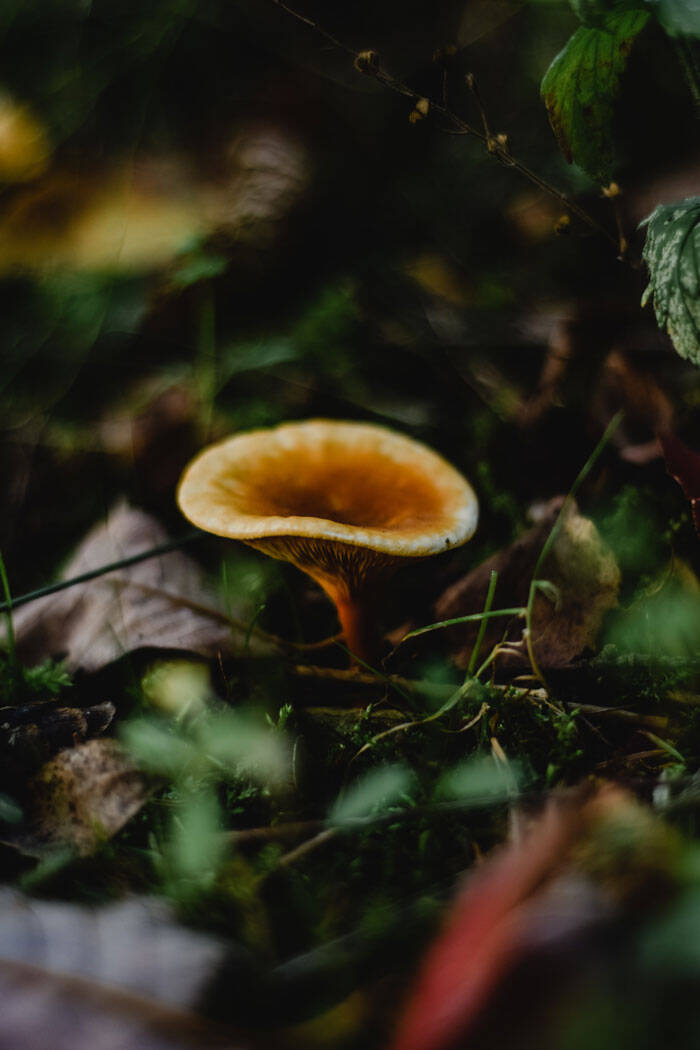
The Foundation’s projects include:
Education: The Fungi Foundation wants to educate every human about fungi.
Expeditions: Only 5-10% of earth’s fungal diversity is known. The Fungi Foundation wants to discover and inventory the diversity.
Conservation: Fungi are not acknowledged as relevant organisms in the spaces where life-altering policies and decisions are made. The Fungi Foundation wants to change that.
Elders: To both preserve and conserve people and the planet, the Foundation wants these “ancestral relationships” to be made known and respected.
Artistic research: The Foundation works at the intersection of art and science. They collaborate across disciplines, working with scientists, policy makers, creators and artists.
Fungi Foundation
While a lot of scientists claim fungi play a crucial role in the earth's survival, there is still much to discover. Another individual helping to enable the world to understand the opportunities and wonders of fungi is Giuliana Furci, founder and CEO of the Fungi Foundation, which she began over a decade ago. Furci and her colleagues facilitate the exploration, discovery, documentation, conservation and preservation of the world’s most important kingdom: fungi.
The Fungi Foundation is the world’s first non-governmental organization that focuses entirely on the protection and promotion of fungi. The diverse global team is connected by a passion for fungi, and their work explores fungi in all forms. The organization’s overall goal is to increase knowledge of fungi diversity, promote innovative solutions to global problems, and educate others about its existence and responsible applications. They also work with global leaders to recommend public policy that helps conserve the fungi kingdom. They want to push the boundaries of mycology, with initiatives to create a healthier planet. Ultimately, they envision a world where fungi “are recognized as the interconnectors and recyclers of nature.”
Thanks to their mutualistic relationship with trees, fungi receive carbon from them through the root system, which helps fungi to grow. Some species of fungi can store exceptional levels of carbon underground, keeping it out of the air and preventing it from heating up the Earth’s atmosphere; in fact, they are the carbon reservoirs of nature. Besides being able to store carbon, fungi are also excellent remediators, capable of cleaning up toxic waste such as oil, or converting radiation into chemical energy for growth. There are fungi that remove copper, zinc, iron, cadmium, lead and nickel from aqueous solutions through absorption.
Dr. Kiers, an evolutionary biologist based at the Vrije Universiteit of Amsterdam, is on a mission to explore the vital role fungi can play in the prevention of accelerated climate change. She is probing a vast and poorly understood universe of underground fungi, investigating which fungi species are where, what they do, and which should be immediately protected. In short, Kiers wants to create an atlas of all that we cannot see, even though it’s all right under our feet. Kiers: “It’s seeing Earth’s metabolism. Who is there? What is their function? Right now, we are concerned so heavily on the overground, we are literally missing half the picture.”
Fungi, mycelium and their superpowers
Some may question fungi as a solution to environmental challenges. It all starts with the greater fungal organism called mycelium, the incredibly tiny ‘threads’ that wrap around or bore into tree roots. Taken together, mycelium composes what's called a ‘mycorrhizal network’, which connects individual plants together to transfer water, nitrogen, carbon and other minerals. Much of a terrestrial ecosystem is dependent on plants' interactions with mycorrhizal fungi. The amount of soil that trees can explore with their roots can extend by using the fungal network of filaments (mycelium) to reach into smaller pores. This allows trees to access water and nutrients that would otherwise be unavailable to them. (source: State of fungi 2020)
Hard drug or medicine?
Theories on mushrooms as medicine seem very niche, alternative and to some even dubious, but the fact is that fungi mushrooms have long been used to support health and wellness. During the 1960s there was a renewed interest from American scientists in (magic) mushrooms and their beneficial effects. But all forms of research quickly were shot down by Nixon during his war on drugs in 1970, when mushrooms were seen as a hard drug for hippies. In 1971, the United Nations also labeled magic mushrooms as an addictive and dangerous drug. It is only in recent years that western scientists have started to research the beneficial effects of mushrooms on mental health.
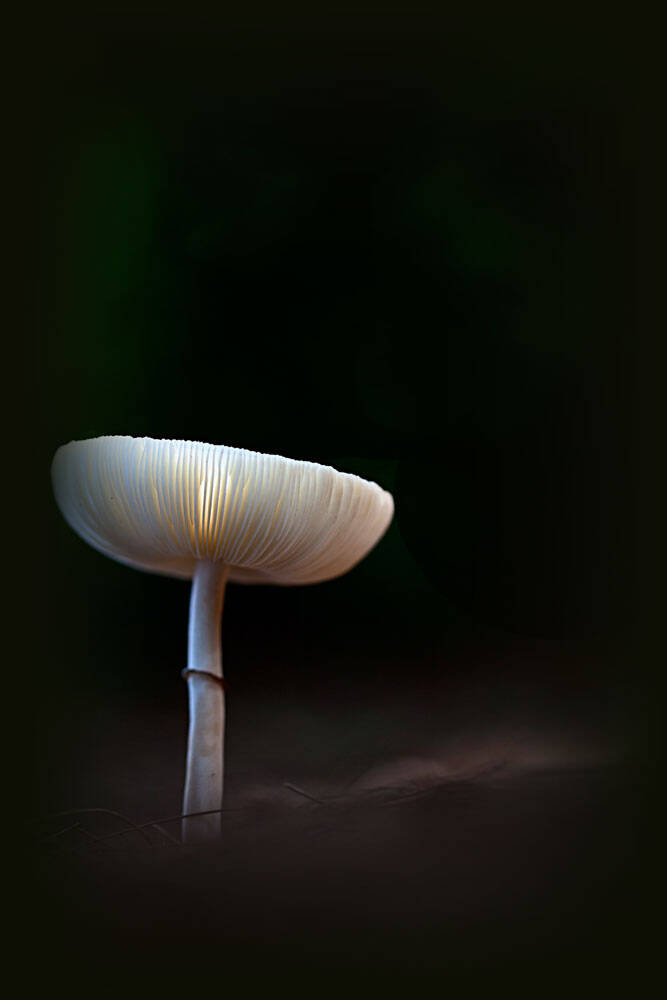
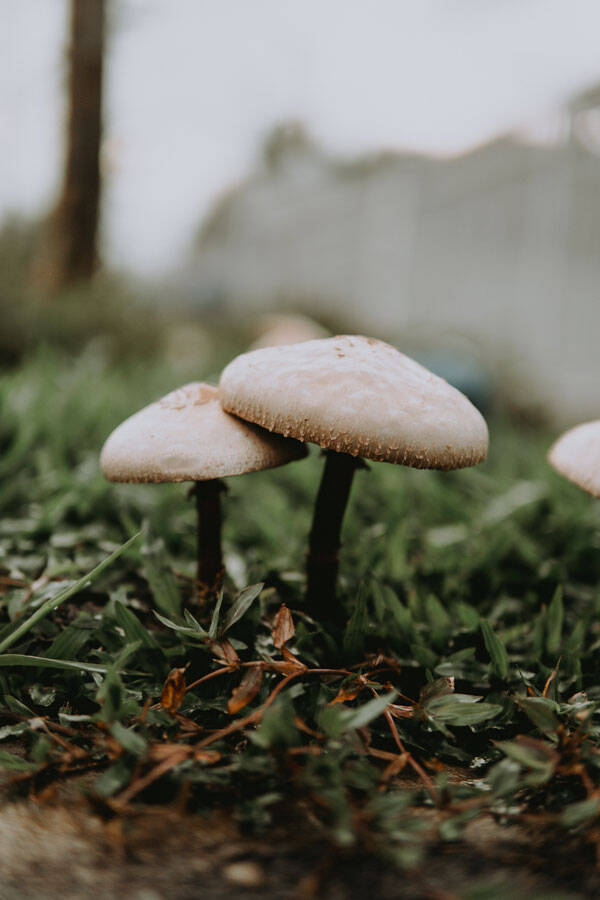
In 2019, he premiered the movie Fantastic Fungi, in which he takes viewers on an immersive journey through time and scale into the earth beneath our feet, and the underground network that - to his belief - can heal and save our planet. In the film, Schwartzberg speaks with renowned scientists and mycologists like Paul Stamets and best-selling authors like Michael Pollan, Eugenia Bone and Andrew Weil. The goal of the film is to create awareness of the beauty, intelligence and solutions that the fungi kingdom offers in response to some of our most pressing medical, therapeutic, and environmental challenges.
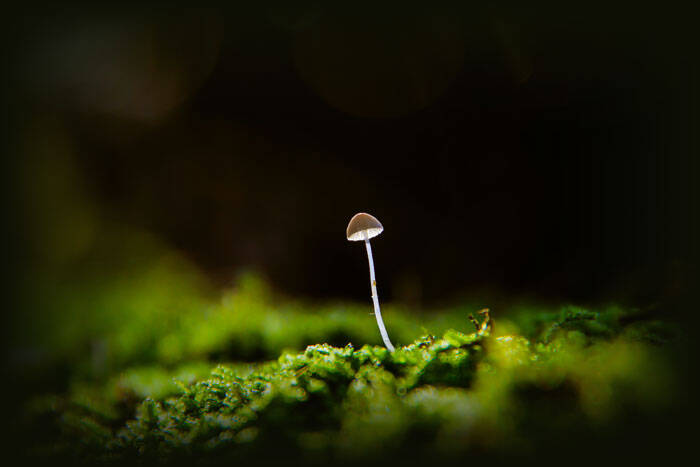
Lately, fungi have become a hot topic. One person who has helped share knowledge on the exceptional traits of fungi is Louie Schwartzberg. Known as the pioneer of time-lapse photography, Schwartzberg is on a mission to share the beauty and intelligence of nature to protect the planet and create a better future for all.
Lisa Appels Moving Art / NatureFootage Xiao Er Kong
Fungi are among the first life forms ever to be found on Earth. Most people know fungi as mushrooms; funky looking plant-like organisms spotted above ground. But the majority of fungi live underground or float in the air, where they are essential to other life forms. In this series we will explore the wide range of fungi characteristics. Part One: fungi as a medicine for both the planet and people.
series - part 1
Will fungi help save our planet?
The fantastic functions of fungi
trendwatch
6 min
In the next part of this series we look a fungi in food; a umami tastemaker
Mushrooms and mental health
The fact that fungi play such a big role in environmental health isn’t the only aspect that has gained attention over the last couple of years. Writers, scientists and filmmakers are also touching on the fact that mushrooms may be able to help cure certain diseases and support people with mental health issues.
In 2019, Imperial College London and John Hopkins University in Maryland, opened special research centers to study compounds like LSD and psilocybin (a naturally occurring psychedelic prodrug compound produced by more than 200 species of fungi) for a range of mental health problems that included anorexia, addiction and depression. On treatment day, a person comes into the clinic, is administered the drug and then sits or lies down under the watchful observation of a therapist who provides support and occasional guidance as the drug’s effects are felt. Research trials thus far have demonstrated that hallucination-inducing substances psilocybin and psilocin can help fight addiction and depression, if taken in small doses.
Professor Alexandre Antonelli is Director of Science at Royal Botanic Gardens, Kew in Richmond, United Kingdom. In his 2020 publication “State of the World’s Plants and Fungi'' he writes: “For thousands of years, humankind has turned to nature to satisfy hunger, cure our diseases, and make our lives more comfortable. But indigenous knowledge was lost as local traditions were downplayed and globalization emerged. As a result, we are still a long way from utilizing the full potential of biodiversity, particularly plants and fungi, which play critical roles in ecosystems."
The Foundation’s projects include:
Education: The Fungi Foundation wants to educate every human about fungi.
Expeditions: Only 5-10% of earth’s fungal diversity is known. The Fungi Foundation wants to discover and inventory the diversity.
Conservation: Fungi are not acknowledged as relevant organisms in the spaces where life-altering policies and decisions are made. The Fungi Foundation wants to change that.
Elders: To both preserve and conserve people and the planet, the Foundation wants these “ancestral relationships” to be made known and respected.
Artistic research: The Foundation works at the intersection of art and science. They collaborate across disciplines, working with scientists, policy makers, creators and artists.
Fungi Foundation
While a lot of scientists claim fungi play a crucial role in the earth's survival, there is still much to discover. Another individual helping to enable the world to understand the opportunities and wonders of fungi is Giuliana Furci, founder and CEO of the Fungi Foundation, which she began over a decade ago. Furci and her colleagues facilitate the exploration, discovery, documentation, conservation and preservation of the world’s most important kingdom: fungi.
The Fungi Foundation is the world’s first non-governmental organization that focuses entirely on the protection and promotion of fungi. The diverse global team is connected by a passion for fungi, and their work explores fungi in all forms. The organization’s overall goal is to increase knowledge of fungi diversity, promote innovative solutions to global problems, and educate others about its existence and responsible applications. They also work with global leaders to recommend public policy that helps conserve the fungi kingdom. They want to push the boundaries of mycology, with initiatives to create a healthier planet. Ultimately, they envision a world where fungi “are recognized as the interconnectors and recyclers of nature.”
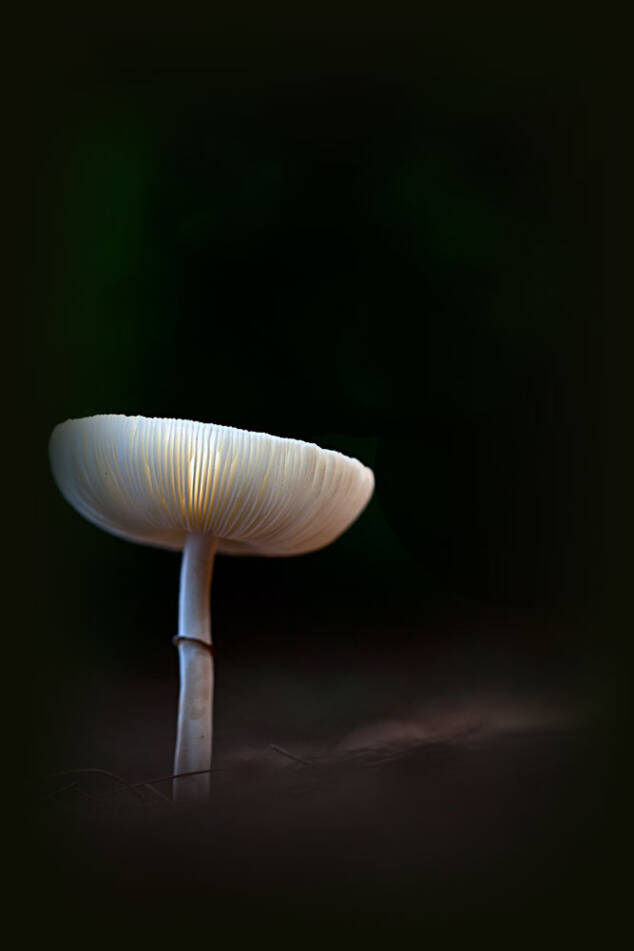
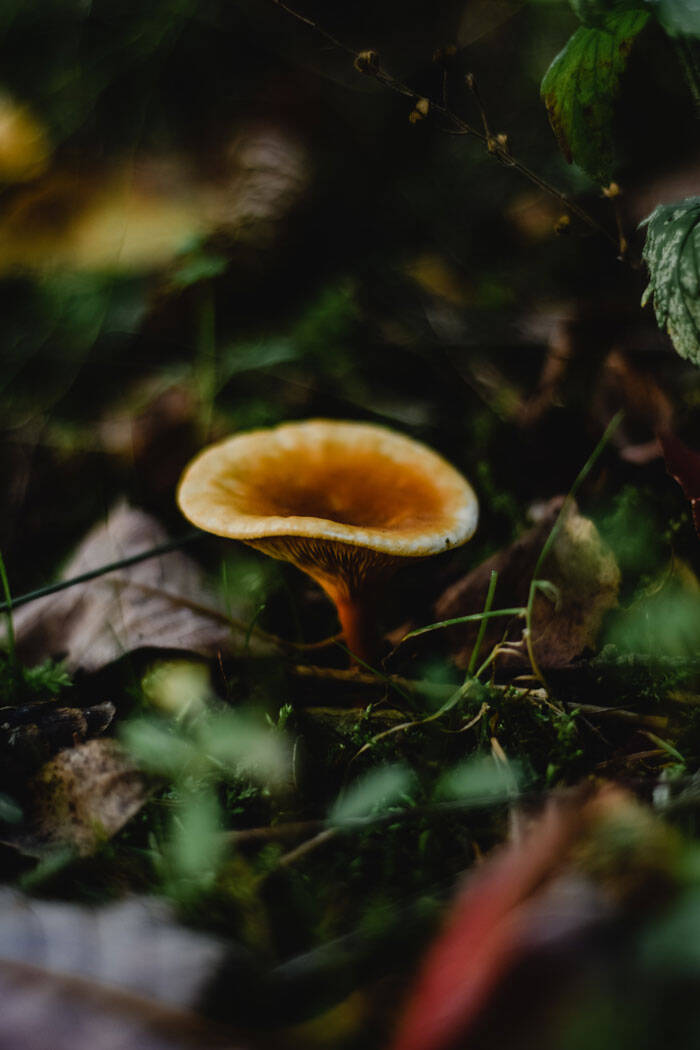
Thanks to their mutualistic relationship with trees, fungi receive carbon from them through the root system, which helps fungi to grow. Some species of fungi can store exceptional levels of carbon underground, keeping it out of the air and preventing it from heating up the Earth’s atmosphere; in fact, they are the carbon reservoirs of nature. Besides being able to store carbon, fungi are also excellent remediators, capable of cleaning up toxic waste such as oil, or converting radiation into chemical energy for growth. There are fungi that remove copper, zinc, iron, cadmium, lead and nickel from aqueous solutions through absorption.
Dr. Kiers, an evolutionary biologist based at the Vrije Universiteit of Amsterdam, is on a mission to explore the vital role fungi can play in the prevention of accelerated climate change. She is probing a vast and poorly understood universe of underground fungi, investigating which fungi species are where, what they do, and which should be immediately protected. In short, Kiers wants to create an atlas of all that we cannot see, even though it’s all right under our feet. Kiers: “It’s seeing Earth’s metabolism. Who is there? What is their function? Right now, we are concerned so heavily on the overground, we are literally missing half the picture.”
Fungi, mycelium and their superpowers
Some may question fungi as a solution to environmental challenges. It all starts with the greater fungal organism called mycelium, the incredibly tiny ‘threads’ that wrap around or bore into tree roots. Taken together, mycelium composes what's called a ‘mycorrhizal network’, which connects individual plants together to transfer water, nitrogen, carbon and other minerals. Much of a terrestrial ecosystem is dependent on plants' interactions with mycorrhizal fungi. The amount of soil that trees can explore with their roots can extend by using the fungal network of filaments (mycelium) to reach into smaller pores. This allows trees to access water and nutrients that would otherwise be unavailable to them. (source: State of fungi 2020)
Hard drug or medicine?
Theories on mushrooms as medicine seem very niche, alternative and to some even dubious, but the fact is that fungi mushrooms have long been used to support health and wellness. During the 1960s there was a renewed interest from American scientists in (magic) mushrooms and their beneficial effects. But all forms of research quickly were shot down by Nixon during his war on drugs in 1970, when mushrooms were seen as a hard drug for hippies. In 1971, the United Nations also labeled magic mushrooms as an addictive and dangerous drug. It is only in recent years that western scientists have started to research the beneficial effects of mushrooms on mental health.
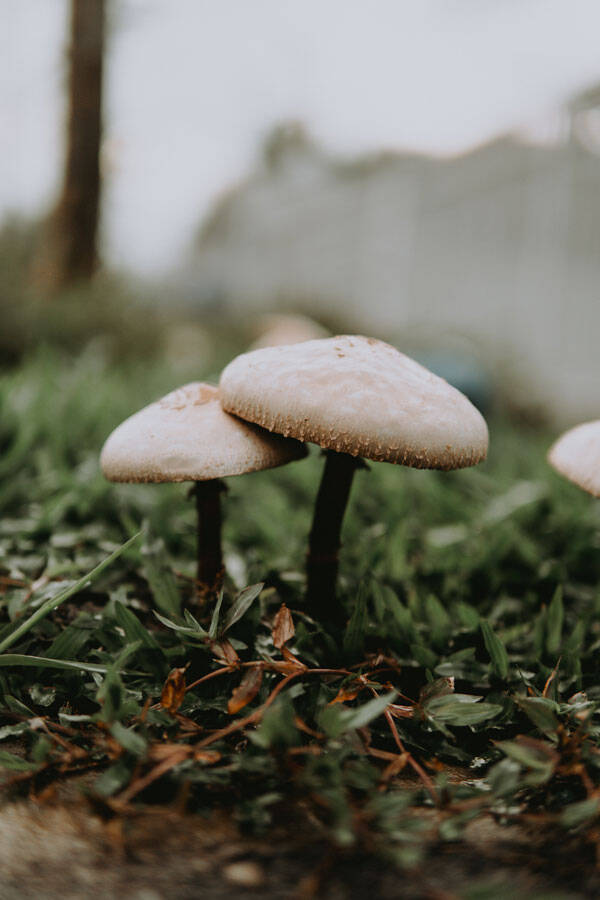
In 2019, he premiered the movie Fantastic Fungi, in which he takes viewers on an immersive journey through time and scale into the earth beneath our feet, and the underground network that - to his belief - can heal and save our planet. In the film, Schwartzberg speaks with renowned scientists and mycologists like Paul Stamets and best-selling authors like Michael Pollan, Eugenia Bone and Andrew Weil. The goal of the film is to create awareness of the beauty, intelligence and solutions that the fungi kingdom offers in response to some of our most pressing medical, therapeutic, and environmental challenges.
Lately, fungi have become a hot topic. One person who has helped share knowledge on the exceptional traits of fungi is Louie Schwartzberg. Known as the pioneer of time-lapse photography, Schwartzberg is on a mission to share the beauty and intelligence of nature to protect the planet and create a better future for all.
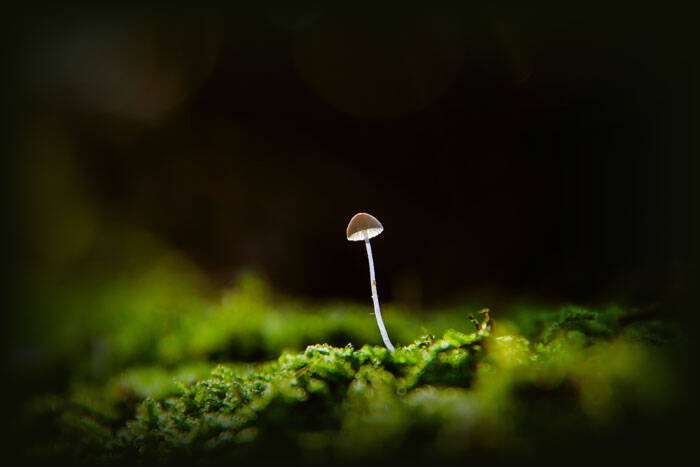
series - part 1
Lisa Appels Moving Art / NatureFootage Xiao Er Kong
Fungi are among the first life forms ever to be found on Earth. Most people know fungi as mushrooms; funky looking plant-like organisms spotted above ground. But the majority of fungi live underground or float in the air, where they are essential to other life forms. In this series we will explore the wide range of fungi characteristics. Part One: fungi as a medicine for both the planet and people.
The fantastic functions of fungi
Will fungi help save our planet?
6 min
